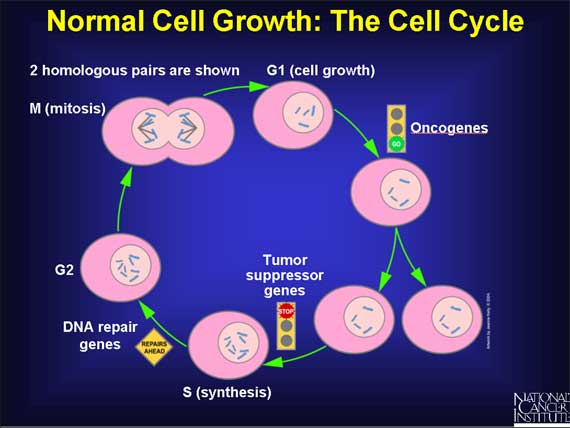|
The cell cycle is a critical process that a cell undergoes in order to copy
itself exactly. Most cancers have mutations in the signals that regulate the
cell's cycle of growth and division. Normal cell division is required for the
generation of new cells during development and for the replacement of old cells
as they die.
Most cells remain in interphase, the period between cell divisions, for at
least 90 percent of the cell cycle. The first part of the interphase is called
G1 (for first gap), followed by the S phase (for DNA synthesis), then G2 (for
second gap). During G1, there is rapid growth and metabolic activity, including
synthesis of RNA and proteins. Cell growth continues during the S phase, and
DNA is replicated. In G2, the cell continues to grow and prepares for cell
division. Cell division (mitosis) is referred to as the M phase. Cells that do
not divide for long periods do not replicate their DNA and are considered to be
in G0.
In normal cells, tumor suppressor genes act as braking signals during G1 to
stop or slow the cell cycle before S phase. DNA repair genes are active
throughout the cell cycle, particularly during G2 after DNA replication and
before the chromosomes prepare for mitosis.

< Previous | Index | Next Slide > |